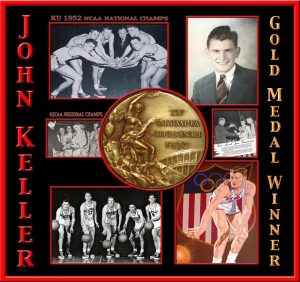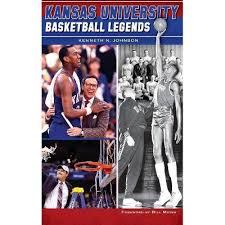The NBA Finals date back to 1947 (when they were known as the Basketball Association of America Finals) and the very 1st NCAA tourney was held in 1939. Olympic basketball competition is even older: it debuted as a demonstration event in 1904 and the men’s version became a medal sport in 1936, with the women finally getting their chance to go for the gold in 1976. The United States has dominated Olympic basketball competition from the start: the men have won 15 gold medals in the 18 tournaments they have participated in during the past 84 years, while the women have won 8 gold medals in the 10 tournaments in which they have competed during the past 44 years. Those of you who were looking forward to the 2020 Olympics opening ceremonies in Tokyo on July 24, 2020 will have to wait an extra 364 days, as the coronavirus caused a postponement until July 23, 2021. Due to the absence of college basketball since mid-March, HoopsHD’s Jon Teitel decided to fill the void by trying to interview as many prior Olympic players/coaches as possible so that you have something to read this summer while not watching the Summer Games. We continue our coverage by chatting with Dr. Kenn Johnson, KU alum and author of multiple books about KU basketball, about John Keller winning an NCAA title and gold medal in 1952.
 (photo credit: Dr. Kenn Johnson)
(photo credit: Dr. Kenn Johnson)
John was born/raised in Page City, KS: how did growing up in such a small town (where trains did not even slow down when they passed) impact him either on or off the court? When John was in high school Page City was so small that there were only eight boys in the entire high school. Since they played only small schools in an isolated rural area, Keller did not get noticed much by college recruiters. Page City is now a ghost town. As best I can determine it was not much even back in the early 1950s, so it is likely that John was anxious to leave to go on to bigger and better things.
What made him choose Garden City CC to begin his college career? Coming from such a small place, Keller was an unknown to most colleges when he graduated from high school. Garden City CC was not too far away from Page City and his brother was a teacher/coach there who helped arrange for him to get a basketball scholarship. It was likely the only school that made him an offer.
He was a junior college All-American: what did it mean to him to receive such an outstanding honor? Known as “Long John”, Keller was an outstanding playmaker, co-captain, and NJCAA All-Tournament selection/MVP after helping his team finish third in the nation. As a serious threat on defense due to his ball-stealing ability, he gained the notoriety necessary to receive such a nomination.
Why did he eventually transfer to Kansas? First of all, KU was usually the first choice for every young Kansan basketball player. The notoriety he achieved in the NJCAA tournament caught the eye of Jayhawk coaches Phog Allen/Dick Harp.
What sort of relationship did he have with Allen? Keller often described Coach Allen as a “great motivator”. Keller was known as a great defender with quick hands. He wanted to take more shots but Phog told him “John, just get the ball to Clyde [Lovellette]. I do not need you to shoot.”
In the 1952 NCAA title game he scored 2 PTS in a win over St. John’s: what did it mean to him to win a title? Phog reportedly told all of his recruits from 1948-1950 that they would win the national championship in 1952, so Keller and all of his teammates were extremely pleased that they were able to help Phog keep his word. Winning the championship also gave John the opportunity to represent his country in the Olympics: the pinnacle of success for all basketball players. They did not have NCAA championship rings in those days but decades later KU basketball made rings for the 1952 team: John proudly displayed it in his office.
He played for team USA at the 1952 Olympics: what did it mean to him to represent his country, and what did it mean to him to win a gold medal? Winning the gold medal was exciting but he said that it was exciting to just be at the Olympics. He obtained tickets to several other events and watched soccer/water polo/track & field/equestrian events. He also watched Floyd Patterson box: “Those things I remember as much as actually playing.” He was proud to represent his country and proud that they did so well. John told his son that in one Olympic game they were trailing Brazil. Assistant coach Allen told head coach Warren Womble, “Put my boys from KU in”…and they won the game.
He was known for his ability to steal the ball: what made him such a good defender? He had quick/strong hands. When his son Kurt was in high school John would do basketball drills with him. Kurt said, “His ability to bat the ball away was incredible.”
He later became a teacher/coach in his hometown of Great Bend: how did he like it? After graduating from KU he returned to Garden City to coach high school basketball for six years before moving to Harrison Junior High to coach/teach. After that, he left coaching and taught ninth grade science and driver’s education at Roosevelt Junior High. All in all, he loved coaching and teaching in Great Bend and stayed there for the rest of his life.
He passed away in 2000: when people look back on his career, how do you think that he should be remembered the most? He was humble and did not brag about his basketball accomplishments, but the KU title was a big deal even though Great Bend was more of a K-State town. “That guy has an Olympic gold medal” was often heard around the town.



